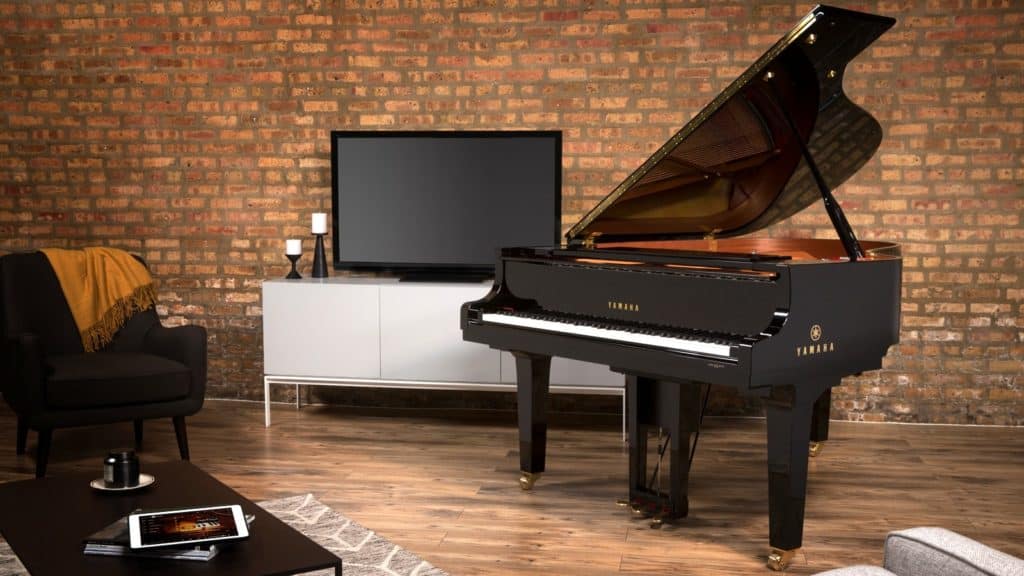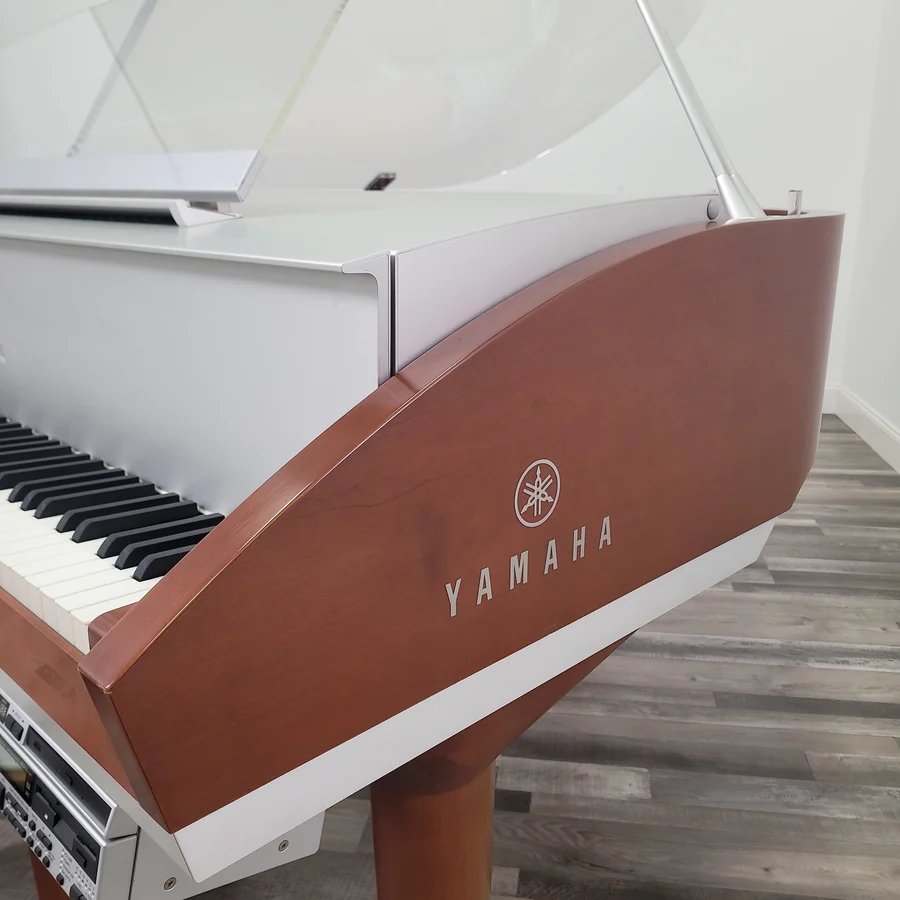How often should a piano be tuned? It’s a question that many piano owners have asked themselves. As an avid pianist and long-time owner of multiple pianos, I understand the importance of keeping your instrument in top shape. But figuring out how frequently to tune it can be confusing, especially for beginners.
Don’t worry – you’re not alone in this dilemma. In fact, it’s one of the most common questions asked by piano owners! So let me put my expertise to use and help you figure out the best maintenance schedule for your beloved instrument.
In this article, we’ll explore everything from why pianos need to be tuned and what factors affect their tuning frequency, to expert tips for maintaining their sound quality and prolonging their lifespan. By the end, you will have all the knowledge needed to ensure that your piano is always in perfect tune! So let’s get started on our journey towards becoming piano maintenance pros together!
So, how often should a piano be tuned?
The frequency of tuning a piano depends on various factors such as the quality of the instrument, its age, and how often it is played. Generally, it is recommended to have your piano tuned at least once a year to maintain its sound quality. However, if you play your piano frequently or notice any changes in its sound, it may need to be tuned more often.
Pianos are complex instruments with many moving parts that can easily fall out of alignment over time. This can result in an uneven or off-key sound which can greatly affect the overall playing experience. Regular tuning not only keeps your piano sounding its best but also helps prevent potential damage or costly repairs down the road.
In addition to annual tunings, there are some signs that indicate when your piano may need immediate attention from a professional tuner. These include sticky keys, unusual sounds or vibrations while playing, and noticeable changes in pitch or tone.
It’s important to note that even if you don’t play your piano very often, it still needs regular maintenance and tuning to keep it in good condition. Neglecting this aspect of care can lead to bigger problems later on.
In summary, while there is no set rule for how often a piano should be tuned since each instrument is unique and requires individualized attention, scheduling an annual tuning with a qualified technician is generally recommended for maintaining optimal sound quality. Additionally, paying attention to any warning signs and addressing them promptly will help ensure that your beloved instrument stays in top shape for years to come.
Understanding Why Pianos Need Regular Tuning
Have you ever had the opportunity to listen to a piano concert, transfixed by the harmonious melodies produced? The rich, resonant sound of each meticulously tuned key is truly enchanting. However, what many people often overlook is that this impeccable musical performance requires regular tuning of the piano. A healthy and properly maintained piano can produce wonderful music.
The process of keeping a piano in tune isn’t just about hitting the right notes; it’s far more complex than that. Like any precision instrument, pianos are affected by their environment – temperature changes, humidity swings or simply time passage could cause those delicate strings inside to contract or expand minutely but significantly enough to throw off your perfect pitch. And remember we’re talking about an instrument with over 200 strings under tremendous tension! Imagine if even one string goes slightly out of sync – it would be like having one wrong note playing throughout your favorite symphony! Thus every regularly played or professionally used piano should ideally have its ‘health check’ at least twice a year.
To maintain its optimal sound quality, here’s a list why pianos need regular checking:
- The Tuning Stability: Over time and with consistent use (or even disuse), your cherished keyboard may start deviating from its proper tunings due to natural wear.
- Aural Pleasure: It not only maintains pitch accuracy for musicians while they’re playing but also ensures listeners enjoy clean harmonic resonance producing absolute delight.
- Prolonged Life: Regular tunings can help detect issues early on that might shorten the life span of your beloved instrument if overlooked.
Henceforth,taking care of our instruments bears as much importance as practicing our pieces on them! In bringing forth magical tunes within us lies the joy and satisfaction of music!
Factors That Affect The Frequency Of Piano Tuning
Climate and the Surrounding Environment
One of the most significant factors impacting how often a piano needs tuning is the climate and environment in which it’s kept. It might seem strange, but humidity levels greatly influence a piano’s sound. Why, you ask? Well, each component of a piano – from its strings to its soundboard – are made up mostly of wood. And we all know that wood tends to expand or contract based on humidity levels.
Here’s something interesting for you:
- A high level of moisture often leads to swelling in wooden parts, causing your pitches go sharp.
- In contrast, drier conditions may cause these components to shrink and make your notes flat.
That means if your piano is located somewhere with fluctuating temperatures or inconsistent humidity (like by an open window), chances are you’ll need more frequent tunings than usual.
The Piano’s Age and Usage
Just like many other things in life – cars, appliances or even our bodies- pianos too undergo wear and tear over time. The age of your beloved instrument can significantly affect the frequency at which it requires tuning.
Here’s why: as a general rule,
- New pianos usually require more tunings during their first year because their strings are still ‘settling’ into place.
- An older piano that has been well-maintained might only need adjusting twice per year; however,
- If it’s old AND heavily used (maybe you’re practicing for concerts?), then expect to tune it much more frequently!
In short? The intensity and frequency of usage matter just as much as the instrument’s age when determining how often it needs tuning.
Read also: how often should a piano be tuned
Expert Tips For Maintaining Your Piano’s Sound Quality
Every piano, regardless of its age or price tag, carries a unique melody. However, only consistent and proper care can ensure that your piano retains this distinct sound quality for years to come. Here are some expert tips from seasoned pianists and technicians on how to maintain the sweet harmony dancing off your piano keys.
- Tuning: A vital aspect of maintaining a piano’s sound quality is regular tuning. Consider it as an annual check-up for your instrument! Pianos experience natural detuning due to the changing weather conditions and frequent play.
- Cleaning: Dust particles can become lodged between the keys over time, affecting the sound produced by each key strike. To avoid this annoyance, gently clean your piano regularly with soft materials like feather dusters.
- Humidity Control: Too much or too little humidity directly impacts your piano’s wood components which in return affect its tone and pitch. It’s paramount then to place it in an area where temperature remains fairly constant – far from windows or heating vents.
In addition to these illuminating insights, remember that how you play also counts significantly in preserving your instrument’s sound quality. An aggressive touch leads not only to unwanted noise but might damage delicate inner components over time as well; so always treat those black & white ivories with tender loving care! The journey towards superb musicality starts with great respect for our instruments, after all.
 how often should a piano be tuned
how often should a piano be tuned
How To Determine When Your Piano Needs Tuning
Many of us are drawn to the beautiful sounds a piano can produce, but like any instrument, its captivating melody relies heavily on being correctly tuned. There are a few tell-tale signs that will let you know when it’s time to give your piano some much-needed attention. The most obvious indication is the quality of sound. If your piano begins to sound off-key or tinny, this is a clear sign that tuning is required. Particularly if you play certain notes and they don’t harmonize as they should.
Another surefire way to determine if your piano needs tuning isn’t related solely to sound; it involves taking a look at the physical condition of the instrument too. Pianos are affected by environmental conditions such as temperature and humidity changes.
Key observations include:
- Piano strings loosening or tightening due to fluctuations in temperature which alters pitch,
- A noticeable layer of dust on either interior hammers or externally indicating lack of use may cause stiffness,
- Dampness affecting wooden components leading them swell or shrink;
If any such issues exist, then it’s high time you called in a professional tuner. Remember not only music from well-tuned pianos soothe our ears but also prolongs its lifespan.
You may also like: types of yamaha piano
Conclusion: Strategies for Ensuring Optimal Lifespan and Performance of Your Piano
A piano, whether it’s a grand concert centerpiece or an intimate upright in your living room, is much more than just a musical instrument. It’s an investment piece that tells stories of countless hours spent learning scales, practicing sonatas and sharing songs with loved ones. Like any cherished possession, you want to ensure that your piano enjoys the longest lifespan possible while maintaining its optimal performance over time. Achieving this requires adopting certain expert strategies.
Regular Tuning is undoubtedly one of these key strategies.
Pianos are complex marvels of engineering – housing thousands of moving parts all collaborating to produce that distinctive sound we love so much. Due to such complexity and regular use, pianos often go out of tune as time goes by – hence requiring periodic tuning. No matter how new or old your piano might be; no matter how frequently or infrequently it’s played; aiming for at least two tunings a year should keep those notes sounding crisp and clean.
In addition to keeping your instrument finely tuned, there are other important measures one can take in preserving their piano’s health:
- Maintaining Appropriate Humidity Levels: Pianos thrive best when humidity levels range between 40% – 50%. Too dry or too moist environments can cause warping and sticking keys respectively.
- Avoid Direct Sunlight: The delicate finish on many pianos can fade under harsh sunlight causing them lose their aesthetic appeal.
- Adequate Dusting & Cleaning: Regular dusting using soft cloths with occasional gentle cleaning using suitable products will prevent buildup which could hinder the movement of internal components.
Finally: Play! You didn’t get your gorgeous instrument just for looking pretty now did you? Playing regularly not only brings joy but also helps maintain mechanisms within the piano.

